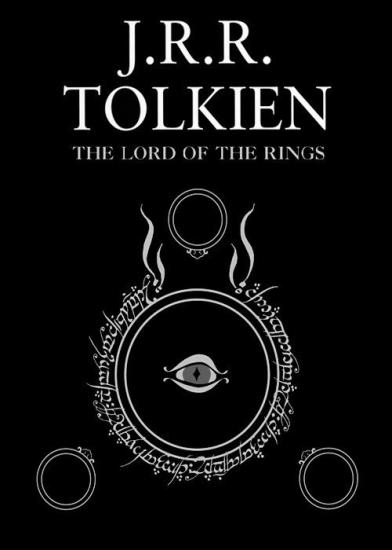
Series: Book 1 in the The Lord of the Rings series
Rating: ****
Tags: Fiction, General, Fantasy, Fantasy Fiction, Fantasy Fiction; English, Epic, Fiction - Fantasy, Fantasy - Epic, English, Classics, Middle Earth (Imaginary Place), Baggins, Tolkien, Frodo (Fictitious character), 1892-1973, J. R. R. (John Ronald Reuel), Baggins; Frodo (Fictitious Character), Lang:en
Summary
One Ring to rule them all, One Ring to
find them, One Ring to bring them all and in the darkness bind
themIn ancient times the Rings of Power were crafted by the
Elven-smiths, and Sauron, the Dark Lord, forged the One Ring,
filling it with his own power so that he could rule all others.
But the One Ring was taken from him, and though he sought it
throughout Middle-earth, it remained lost to him. After many
ages it fell by chance into the hands of the hobbit Bilbo
Baggins.From Sauron's fastness in the Dark Tower of Mordor, his
power spread far and wide. Sauron gathered all the Great Rings
to him, but always he searched for the One Ring that would
complete his dominion.When Bilbo reached his eleventy-first
birthday he disappeared, bequeathing to his young cousin Frodo
the Ruling Ring and a perilous quest: to journey across
Middle-earth, deep into the shadow of the Dark Lord, and
destroy the Ring by casting it into the Cracks of Doom.The Lord
of the Rings tells of the great quest undertaken by Frodo and
the Fellowship of the Ring: Gandalf the Wizard; the hobbits
Merry, Pippin, and Sam; Gimli the Dwarf; Legolas the Elf;
Boromir of Gondor; and a tall, mysterious stranger called
Strider.This new edition includes the fiftieth-anniversary
fully corrected text setting and, for the first time, an
extensive new index. J.R.R. Tolkien (1892-1973), beloved
throughout the world as the creator of The Hobbit, The Lord of
the Rings, and The Silmarillion, was a professor of Anglo-Saxon
at Oxford, a fellow of Pembroke College, and a fellow of Merton
College until his retirement in 1959. His chief interest was
the linguistic aspects of the early English written tradition,
but while he studied classic works of the past, he was creating
a set of his own.